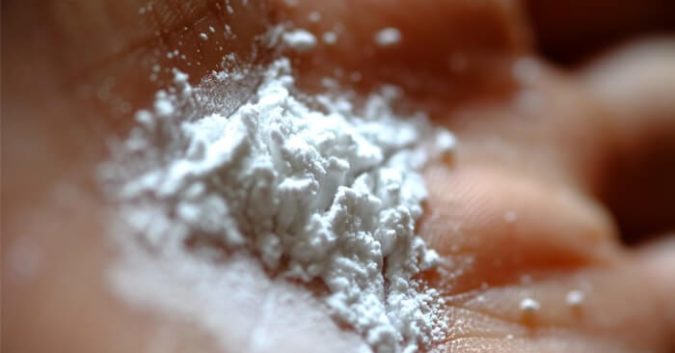Is Johnson’s® Baby Powder safe? This is the question millions of consumers around the world are now asking after yet another massive trial loss for Johnson & Johnson (J&J).
On Wednesday, March 13, the global healthcare products company was ordered by a California jury to pay $29 Million to a dying woman who alleged that asbestos contamination in the company’s talc-based products was to blame for her fatal case of mesothelioma.
Asbestos is the only known cause of mesothelioma. The jury determined unanimously that J&J’s Baby Powder contained asbestos, which ultimately led to the development of the woman’s cancer.
For the multi-billion-dollar company, this is only their latest trial defeat. Last December, after an eye-opening report from Reuters, which claimed the company knew its talc was contaminated by asbestos for over 50 years, the company’s net worth fell by a whopping 10%. Thursday, J&J’s stock took yet another dip south, losing around $2 per share.
Wednesday’s loss in California marks the seventh time that J&J has lost over claims that it hid the health risks associated with its Baby Powder. The company has vowed to appeal the verdict.
Over 13,000 additional talc-and-ovarian-cancer lawsuits are presently awaiting trial.
Johnson & Johnson Denies Claims That Its Talc Is Dangerous
In spite of the 7 defeats, and in spite of the over 13,000 talc-related lawsuits that have yet to be brought to court, Johnson & Johnson has been unwavering in its position: that talc is, was, and always has been safe.
Trial losses, however, show a very different reality. In 2018, a Los Angeles jury awarded $21.7 Million to a woman alleged Baby Powder was the cause of her cancer. Earlier that same year, a St. Louis jury awarded $4.69 Billion to 22 women who claimed the same thing.
After its defeat on Wednesday, J&J released a statement:
“We respect the legal process and reiterate that jury verdicts are not medical, scientific, or regulatory conclusions about a product. We are disappointed with [Wednesday’s] verdict and will pursue an appeal because Johnson’s Baby Powder does not contain asbestos or cause cancer.”
J&J’s trial loss and statement followed – very coincidentally – the day after a Congressional hearing was called to weigh the health risks of Baby Powder and other talc-based products.
Congressional Hearing Asks: Is Talc Safe?
Just one day before Wednesday’s $29-Million loss, the health concerns regarding talc, and talc-based products, were brought before Congress.
The U.S. House Subcommittee on Economic and Consumer Policy invited several people to testify on talc safety, and to discuss the science behind its link to cancer. Doctors, researchers, and the family members of deceased cancer patients were among the people who offered testimony to the committee.
Government pressure has been mounting in recent years, as thousands of women continue to come forward claiming that Johnson & Johnson knew about their talc’s asbestos contamination and chose to do nothing. Johnson & Johnson has remained steadfast in its denial of this claim.
Dr. Anne McTiernan, a leading scientist who has conducted numerous scientific studies on talc and cancer, offered her thoughts at the hearing, stating, quite simply, that “increasing the amount of exposure to talcum powder products in the genital area [results] in an increased risk of developing epithelial ovarian cancer."
McTiernan’s work, which has compiled data from nearly 40 separate studies on talc and cancer, found that women who used talcum powder in their genital area were at a 22%-31% increased risk of developing inflammatory responses, which could cause the development of cancer.
In reality, it seems clear that what is happening right now proves the conclusions of McTiernan’s studies, as thousands and thousands of women, all of whom regularly used the same talc-based products, are getting sick and dying from mesothelioma and ovarian cancer.
With 13,000 additional talc-related lawsuits awaiting their day in court, Johnson & Johnson is simply running out of time to right this major wrong, and to give back consumers the confidence they need to shop for their products once again.
